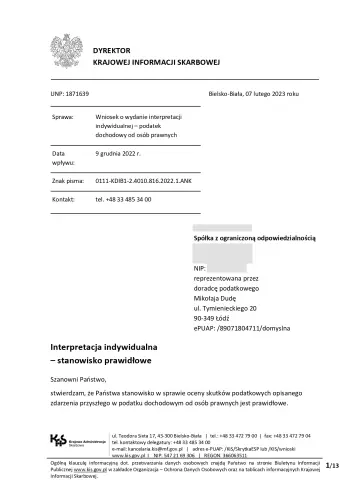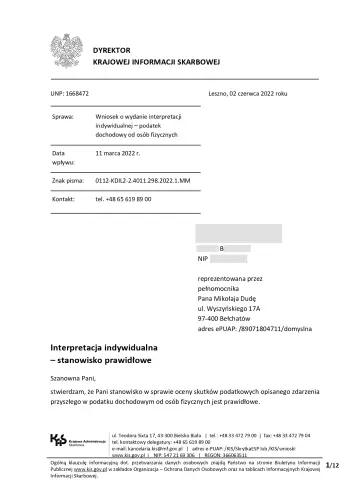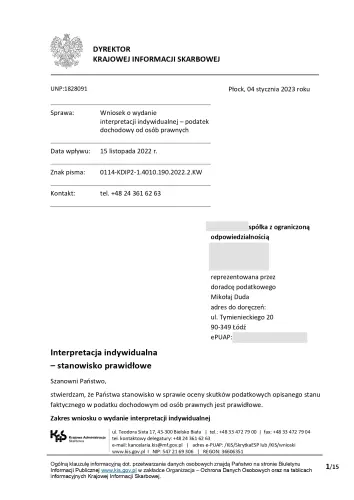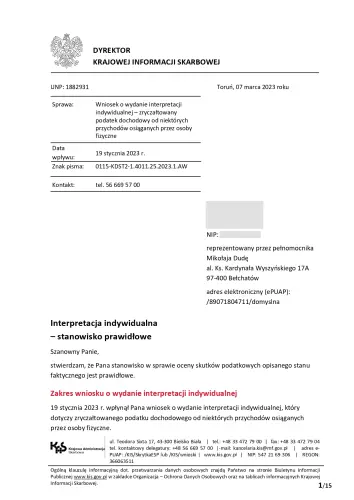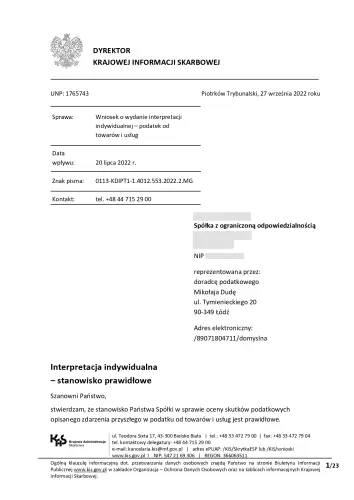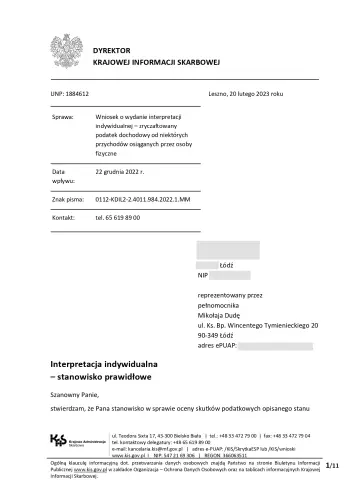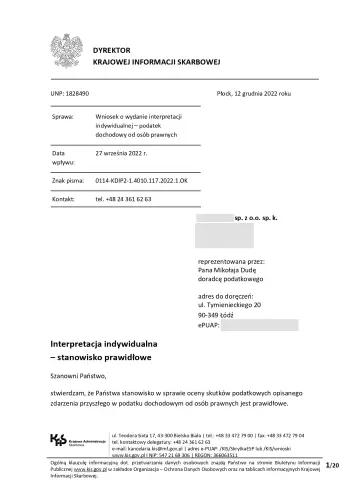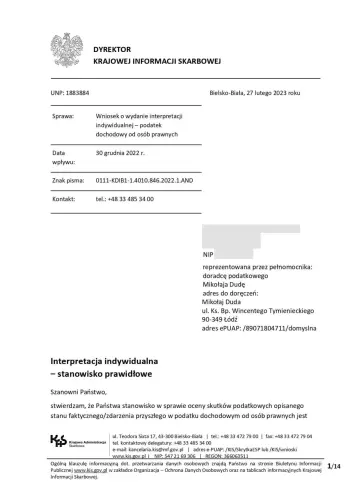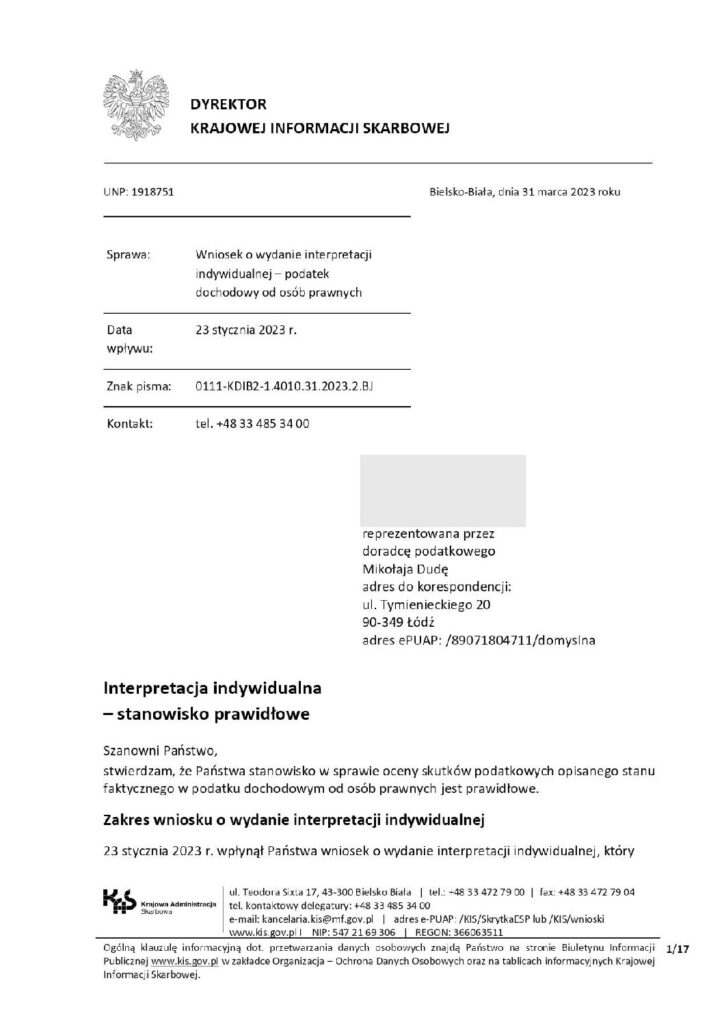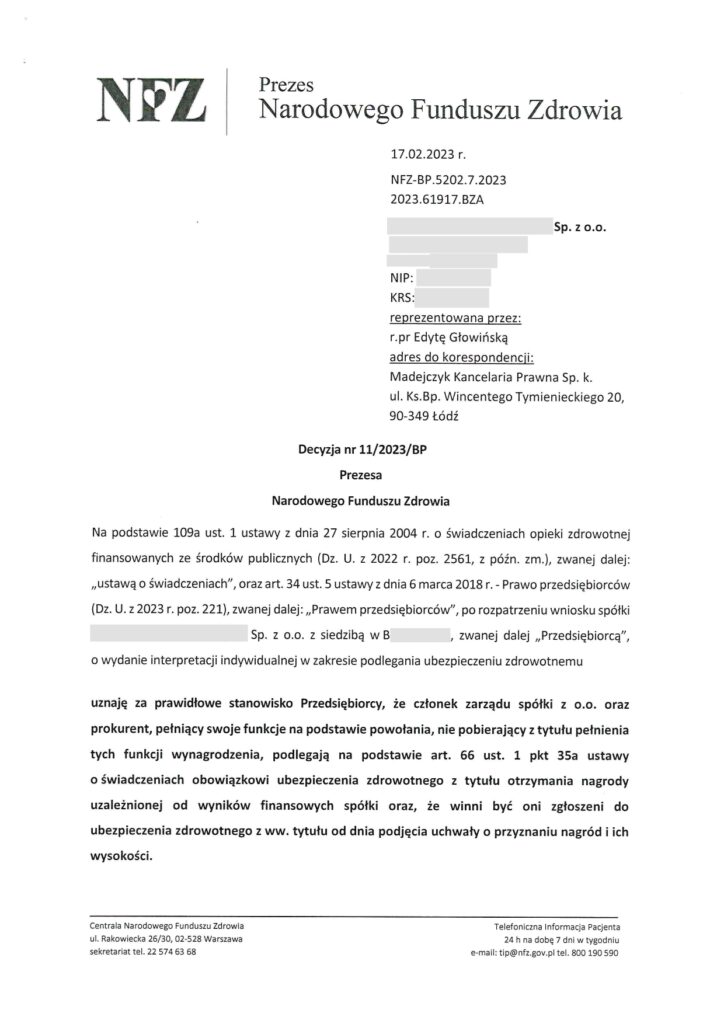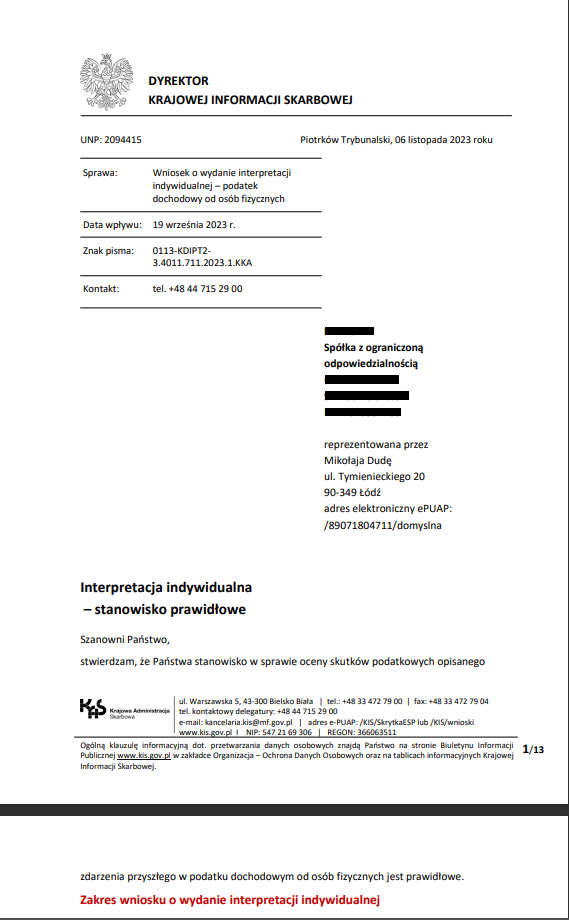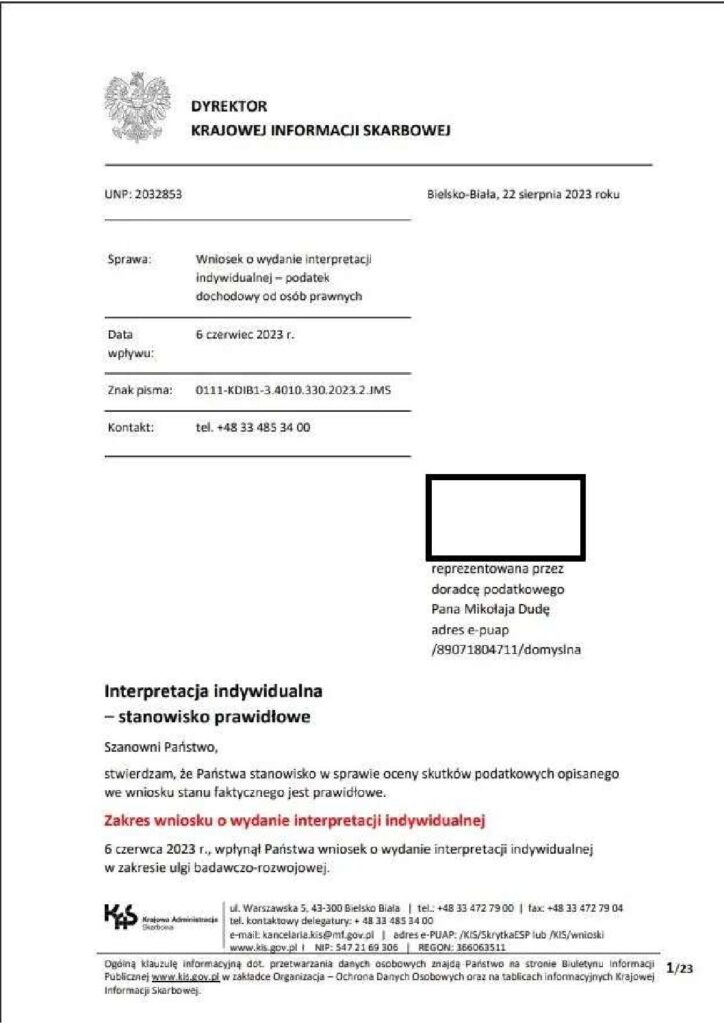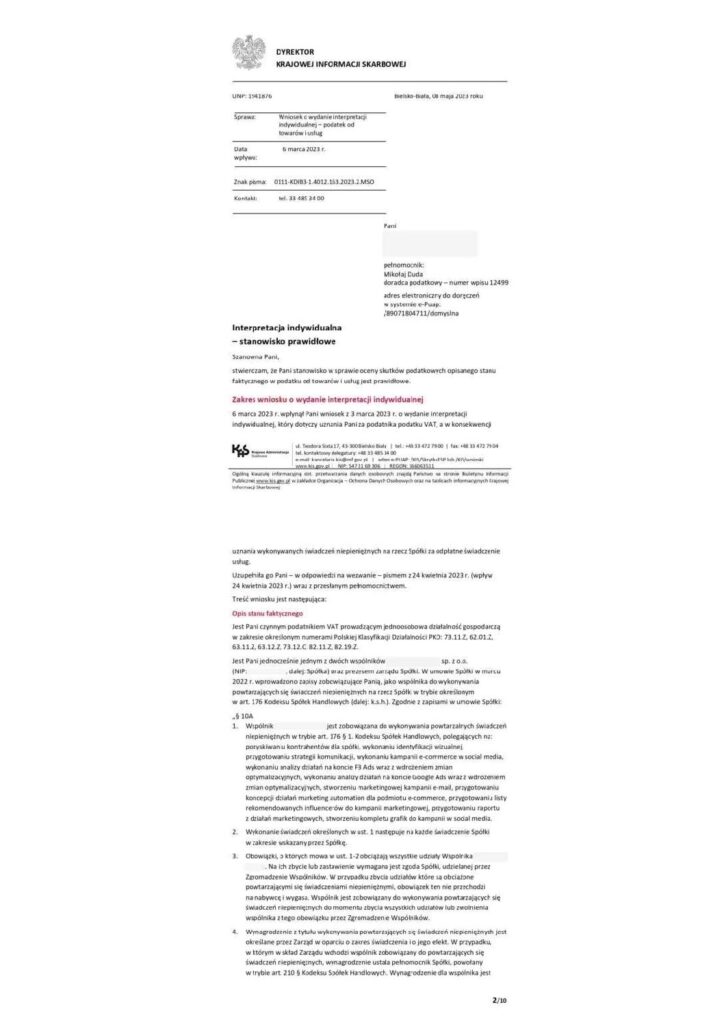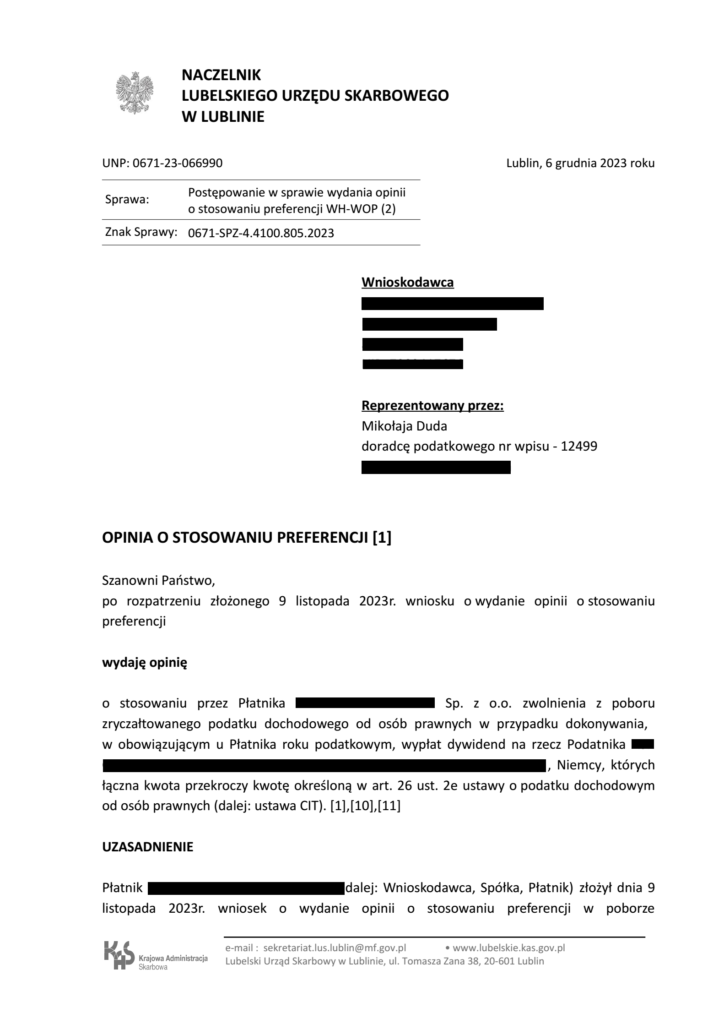IP BOX is a tax preference designed for anyone who conducts research and development activities and derives income from, among other things, a computer program or patent they have created. Income from so-called qualified intellectual rights is subject to a 5% income tax rate.
The IP Box preference is a solution that the taxpayer can use after the end of the tax year in the annual return. During the tax year, taxpayers pay advance tax payments at the general rate (9% or 19% – CIT taxpayers, 17%/32% – tax scale or 19% – PIT taxpayers ). A taxpayer who meets the conditions set forth in the IP Box regulations shall declare in his annual return the amount of income from qualified IP separated from the general income earned during the tax year. The taxpayer then applies a 5% tax rate instead of the general rate to qualified IP income.
The most important requirements to be met for IP BOX relief include:
- carrying out research and development activities;
- the creation of qualified IP (qualified intellectual property rights) in the course of research and development activities;
- keeping separate records of business events covering all financial operations related to income from qualified IP, in accordance with Article 24e(1)(1) of the CIT Law and Article 30cb(1)(1) of the PIT Law;
- earning income from qualified IP that is taxable in Poland;
- incurring eligible costs in connection with the creation, development or improvement of qualified IP.
Qualified intellectual property rights subject to IP BOX relief include:
- patent,
- the right of protection for a utility model (a utility model includes, for example, new functions of a piece of furniture or a technical way of making it),
- the right to register an industrial design (an industrial design includes, for example, a different shape, color, etc., such as a piece of furniture),
- the right from registration of integrated circuit topography,
- supplementary protection right for a patent on a medicinal or plant protection product (obtaining a patent is a lengthy process, so in the case of drugs (active particles), a supplementary protection right is used to extend patent protection),
- the right from registration of a medicinal product and a veterinary medicinal product authorized for marketing,
- the exclusive right referred to in the Law of June 26, 2003 on legal protection of plant varieties (Dz. U. [Journal of Laws] of 2018, item 432),
- copyright of a computer program.
